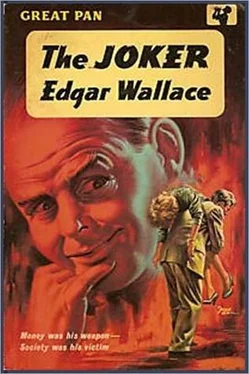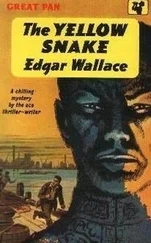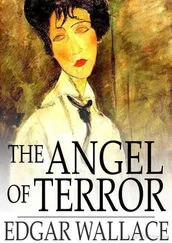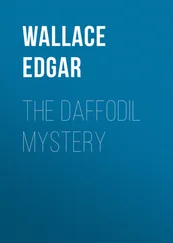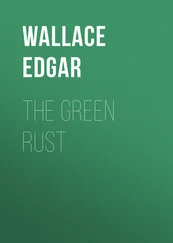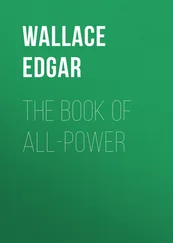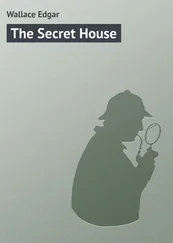Edgar Wallace - The Joker
Здесь есть возможность читать онлайн «Edgar Wallace - The Joker» весь текст электронной книги совершенно бесплатно (целиком полную версию без сокращений). В некоторых случаях можно слушать аудио, скачать через торрент в формате fb2 и присутствует краткое содержание. Год выпуска: 0101, Жанр: Старинная литература, на английском языке. Описание произведения, (предисловие) а так же отзывы посетителей доступны на портале библиотеки ЛибКат.
- Название:The Joker
- Автор:
- Жанр:
- Год:0101
- ISBN:нет данных
- Рейтинг книги:5 / 5. Голосов: 1
-
Избранное:Добавить в избранное
- Отзывы:
-
Ваша оценка:
- 100
- 1
- 2
- 3
- 4
- 5
The Joker: краткое содержание, описание и аннотация
Предлагаем к чтению аннотацию, описание, краткое содержание или предисловие (зависит от того, что написал сам автор книги «The Joker»). Если вы не нашли необходимую информацию о книге — напишите в комментариях, мы постараемся отыскать её.
The Joker — читать онлайн бесплатно полную книгу (весь текст) целиком
Ниже представлен текст книги, разбитый по страницам. Система сохранения места последней прочитанной страницы, позволяет с удобством читать онлайн бесплатно книгу «The Joker», без необходимости каждый раз заново искать на чём Вы остановились. Поставьте закладку, и сможете в любой момент перейти на страницу, на которой закончили чтение.
Интервал:
Закладка:
He muttered something under his breath which she did not catch and it occurred to her that she had cowed this bullying little man, though she had had no such intention.
‘I shall not want you any more.’ He took out his pocket-book, opened it and extracted a banknote. ‘This is in the nature of a bonus,’ he said. ‘I do not intend continuing your allowance.’
He expected her to refuse the money and he was not wrong.
‘Is that all?’ she asked. She did not attempt to take the note.
‘That is all.’
With a nod she turned and walked to the door. ‘The charwoman is coming tonight to clean up,’ she said. ‘You had better make arrangements for her to stay on—but I suppose you’ve already made your plans.’
Before he could reply, she was gone. He heard the street door slam after her, took up the money and put it back in his case; and he was without regret for, if the truth be told, Mr Arthur Ingle, despite the largeness of his political views, was exceedingly mean.
There was a great deal for him to do: old boxes to open and sort, papers and memoranda to retrieve from strange hiding-places. The seat of the big settee on which Aileen had sat so often waiting for the cleaner to finish her work, opened like a lid and here he had documents and, in a steel box, books that might not have come to light even if the police had been aware of the flat at the time of his arrest, an had made their usual search.
Ingle was a man of wide political activities. No party man in the sense that he found a party to match his own views; rather, he was one of those violent and compelling thinkers who are unconsciously the nucleus of a movement. His grudge against the world was a sincere one. He saw injustice in the simplest consequences of cause and effect. His opinions had not made him a thief; they had merely justified him in his disregard for the law and his obligation to society.
Imprisonment had made him neither better nor worse, had merely confirmed him in certain theories. Inconsistently, he loathed his prison associates, men who had been unsupported by his high motives in their felonies. The company of them was contamination. He hated the chaplain; and only one inmate of that terrible place touched what in him still remained tender. That was the old, blind horse who had his stable in the prison, and whose sight seemed to have been destroyed by Providence that he might not witness the degradation of the superior mammals that tramped the exercise ring, or went trudging and shuffling up the hill and through the gates.
He was the one man in the prison who was thankful when the cell door closed on him and the key turned in the lock.
The foulness of these old lags, their talk, their boasts, the horrible things that may not be written about…he could not think back without feeling physically sick. In truth he would not have stretched out his hand if, by so doing, he could have opened those cell doors and released to the world the social sweepings whom it was his professed mission to salve.
His work finished, he lit a cigarette, fitted it carefully into an amber holder and, adjusting the cushions, lay down on the settee and smoked and thought till the telephone bell roused him and he got up.
The voice that spoke to him was quite unfamiliar. ‘Is that Mr Ingle?’
‘Yes,’ he said shortly.
‘Will you make a sacrifice of your principles?’ was the astonishing request, and the man smiled sourly.
‘What I have left, yes. What do you wish?’
It might be an old friend in need of money, in which case the conversation would be short. For Arthur Ingle had no foolish ideas about charity.
‘Could you meet me tonight on the sidewalk immediately opposite Horse Guards Parade?’
‘In the park, you mean?’ asked Ingle, astonished. ‘Who are you? I’ll tell you before you go any further that I’m not inclined to go out of my way to meet strangers. I’m a pretty tired man tonight.’
‘My name is—’ a pause—‘Harlow.’
Involuntarily, Ingle uttered an exclamation.
‘Stratford Harlow?’ he asked incredulously.
‘Yes, Stratford Harlow.’
There was a long pause before Arthur Ingle spoke. ‘It’s rather an extraordinary request, but I realise that it isn’t an idle one. How do I know you’re Harlow?’
‘Call me up in ten minutes at my house and ask for me,’ said the voice. ‘Will you come?’
Again Mr Ingle hesitated. ‘Yes, I’ll come,’ he said. ‘At what time?’
‘At ten o’clock exactly. I won’t keep you hanging about this cold night. You can get into my car and we’ll drive somewhere.’
Ingle hung up the telephone a little bewildered. He was a cautious man and after ten minutes had expired he put through the number he discovered in the phone directory, and the same voice answered him. ‘Are you satisfied?’
‘Yes, I’ll be there—ten o’clock,’ he said.
He had two hours to wait. The charwoman did not arrive till nine. He gave her instructions, made arrangements for the following day; and went back to the dining-room to think out the extraordinary request which Stratford Harlow had made of him. And the more he thought, the less inclined he as to keep the appointment. At last he turned to his writing table, took out a sheet of paper and scrawled a note.
“DEAR MR HARLOW,
“I am afraid I must disappoint you. I am in such a position, being an ex-convict, that I cannot afford to take the slightest risk. I will tell you I frankly that what I have in my mind is that this may be a frame-up organised by my friends the police, and I think that it would be, to say the least, foolish on my part to go any farther until I know your requirements, or at least have written proof that you have approached me.
“Yours sincerely,
“ARTHUR INGLE.”
He put the letter in an envelope, addressed it, and marked in the corner in bold letters ‘By hand. Urgent.’ Even now he was not satisfied. He went to the telephone to call a district messenger, but he did not lift the receiver. His curiosity was piqued. He felt he must know, with the least possible delay, just why Stratford Harlow had summoned Arthur Ingle, late of Dartmoor convict establishment. And why should the meeting be secret? A man of Harlow’s standing would not lose caste, even if he sent for him to go to his house. He came to a sudden resolve, pitched the letter on to the table, went into his bedroom and changed into a dark suit.
By the time he had climbed into his overcoat he was satisfied that he was taking the wisest course. The charwoman was in the kitchen and he opened the door to pass his last admonition. She was on her knees, scrubbing-brush in hand, and he looked down into a long, weak face over which strayed lank wisps of grey-black hair.
‘I’m going out. You needn’t wait. Finish your work and be here in the morning before eight,’ he barked and slammed the door on this inconsiderable member of the proletariat and went down the stairs in a spirit of adventure that made him feel almost young.
As the Horse Guards clock was chiming the three-quarters he came into Birdcage Walk and turned along the lonely footpath that runs parallel with the House Guards and flanks the broad parade ground. There was no hurry; he fell into a gentle stroll, fast enough to keep him warm and to avoid any suspicion of loitering within the meaning of the act.
It could not be a frame-up, he had decided. A man of Harlow’s character would hardly lend himself to such a plot; and in his heart of hearts, for all his bitter gibes at the police, he did not believe seriously in the prison legend of innocent men being trapped by cunning police plots.
He looked at his watch under a street standard; it was five minutes to ten, and he strolled back the way he had come, and stopped immediately in a line with the gates that closed the arch of the Horse Guards. As he did so a car came noiselessly along the sidewalk from the direction of Westminster.
Читать дальшеИнтервал:
Закладка:
Похожие книги на «The Joker»
Представляем Вашему вниманию похожие книги на «The Joker» списком для выбора. Мы отобрали схожую по названию и смыслу литературу в надежде предоставить читателям больше вариантов отыскать новые, интересные, ещё непрочитанные произведения.
Обсуждение, отзывы о книге «The Joker» и просто собственные мнения читателей. Оставьте ваши комментарии, напишите, что Вы думаете о произведении, его смысле или главных героях. Укажите что конкретно понравилось, а что нет, и почему Вы так считаете.
